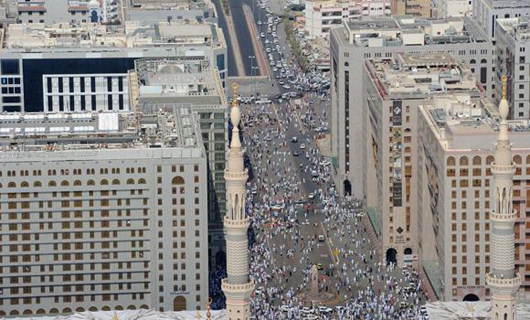
Jeddah, Jan 2: The multibillion-riyal expansion of the Prophet’s Mosque in Madinah has seen several hotels demolished, resulting in the loss of 12,000 jobs, a local Arabic daily newspaper reported Thursday.
Ghani Al-Ansari, the head of the tourism committee at the Madinah Chamber of Commerce and Industry, was quoted as saying that the government must address the issue of men and women losing their jobs.
He said almost 4,000 have already lost their jobs in the first phase of the expansion, with the same fate awaiting 8,000 more in the next few days. “We hope the government will find alternative work for them,” he said.
Several workers said they do not know what they are going to do now. Mohammed Zaheer, who worked at a hotel, said he has joined many others in looking for work.
He said the demolition of hotels in the area would benefit hotel owners but employees like him have been left to fend for themselves.
The facelift of Madinah, including the expansion of the Prophet's Mosque, is expected to cost more than SR100 billion. Ordered by Custodian of the Two Holy Mosques King Abdullah, it will ensure the mosque can hold more than 1.6 million worshippers. The project includes SR25 billion for land acquisition.





Comments
Add new comment